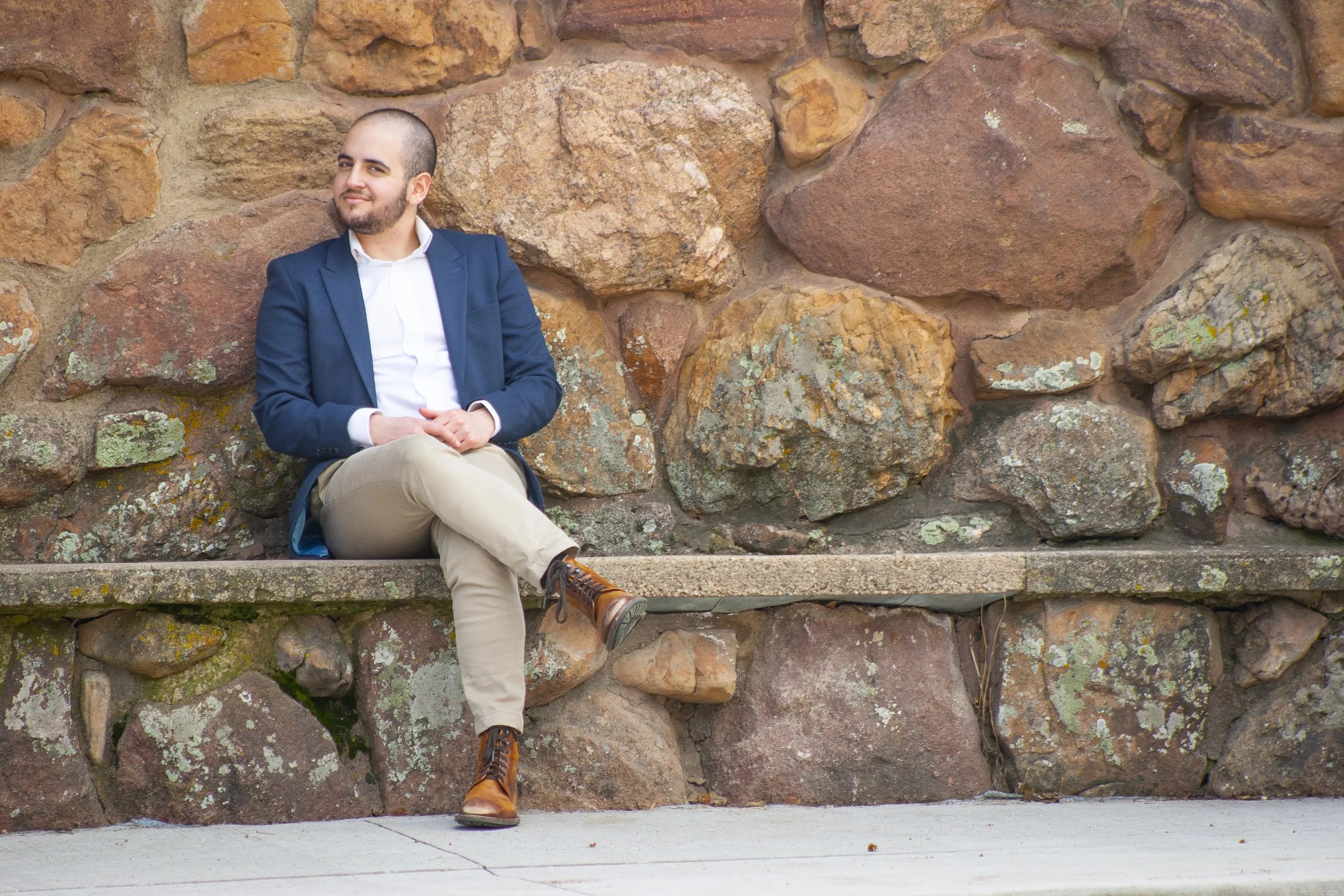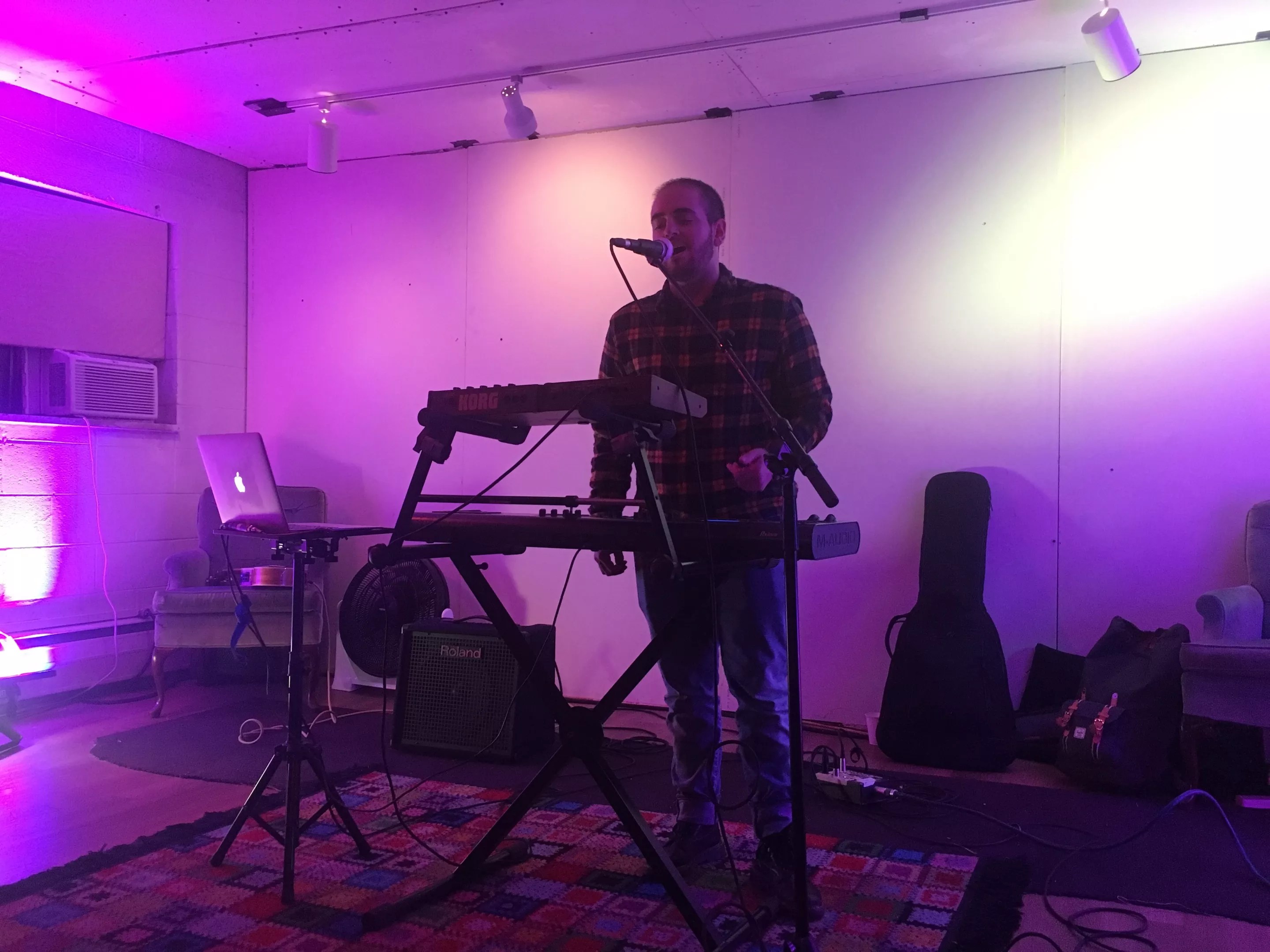
Chava Tzemach

Audio By Carbonatix
Around 2015, New Jersey-born composer Joel Zigman had been pigeonholed as the social-justice guy trying to reform an academic classical-music program at the University of Texas at Austin.
His politics had swerved left, he was in the process of transitioning from a female to male identity, and the classical-music community was as old-fashioned as ever – stuck with the music of dead cis-gender white guys.
Emotionally paralyzed, Zigman dropped out of the program, moved back east to the New York City area, and immersed himself in the new contemporary movement that was booming there. He wrote about music online, kept composing, and frequented concerts tied to the avant-garde new-classical label New Amsterdam Records.
But that stint wasn’t long lived. Exhausted by New York’s cutthroat arts scene and unsettled by the impact his changing voice had on his singing, he took a pause from composing massive pop-classical works to start teaching.

Joel Zigman at Seventh Circle Music Collective.
Sam Long
New York had few jobs, so he looked elsewhere for a less competitive but equally thriving creative community. He landed in Denver, where there were plenty of teaching gigs, and soon found himself making connections in the city’s DIY music scene.
For work, he taught music classes in Jefferson County schools. It went well at first. He used his experience as a professional composer to liven the classroom. But then school administrators tried to gag him from speaking about his identity, as Chalkbeat reported. The district was fine as long as the teachers were silent about being trans, but with more children coming out as trans and gender non-binary as early as kindergarten, Zigman says, silence wasn’t acceptable.
So after trying to reform Jeffco from within the system, he left the district and formed a private music studio where he could teach kids guitar, ukulele, piano and basic drums without the restrictions of the school district. He’s continuing to work with other advocates to create protections in Jefferson County for transgender teachers and students.
He says he’s happy to be teaching outside the system and has plans to open a music school with a friend sometime in the next couple of years. His goal: fair pay and working conditions for anyone employed.
Through Zigman’s various transitions, his frustrations with classical music grew. Worn down by his struggles and suffering from ragged mental health, he had lost the focus needed to compose large-scale works. Teaching took its toll, and he largely stopped making music. Eventually he began composing small-scale works on synthesizers, songs he could write in a day.
He looked to form a band before realizing he would rather just perform alone – as scary as that was for him.
Behind the keyboard, he began to write pop songs about all the emotional and political turmoil he was going through. He laid down some demo tracks, put them up on Bandcamp, and began to book shows around town. He brands his songs as full of “transgender feelings,” but in reality, he says, he’s ambivalent about how much he wants to embrace the trans-artist label.
While he’s playing DIY shows at Seventh Circle Music Collective, the Bakery, Glitter City Nights recording studio and even Herman’s Hideaway, he’s also thinking about what it would look like to start composing bigger classical works again.

Joel Zigman at Glitter City Nights.
Leanne Alaman
For Zigman, all music composition and performance come with an enormous sense of political responsibility to the world: Is his music having an impact? If so, how? And is it important enough?
The larger the piece, the larger the burden. But even the small stuff is fraught.
“It felt really selfish to be playing more shows, to try to get my music out there,” he says.
In some sense, his shift to lo-fi earnest pop signals his willingness to take the political pressure off, to do something digestible for audiences and for himself while wrangling with the relationship between politics, identity and aesthetics. Instead of making abstract music, he’s writing songs that are straightforward and simple on the surface, but surprising and complex underneath.
On Saturday, December 14, he’ll play his first gig at the Bakery. The lineup – a mix of musicians and poets including Teacup Gorilla, Birdhouse View, Hayden Dansky and ENJI – is made up almost entirely of trans artists. Zigman will headline.
He’s a firm believer that people from marginalized communities make better art, and there is a paradox he’s facing: “I’m a passing white guy” – and white guys, from his political perspective, make less interesting work.
Still, he wants his experiences to be put to good use through what he creates.
“What I love about music is how it helps me deal with emotions and identity,” he says.
Joel Zigman plays with Teacup Gorilla, Birdhouse View, Hayden Dansky, and ENJI, at 7:30 p.m. Saturday, December 14, at the Bakery, 2132 Market Street. For more information, go to the event’s Facebook page.